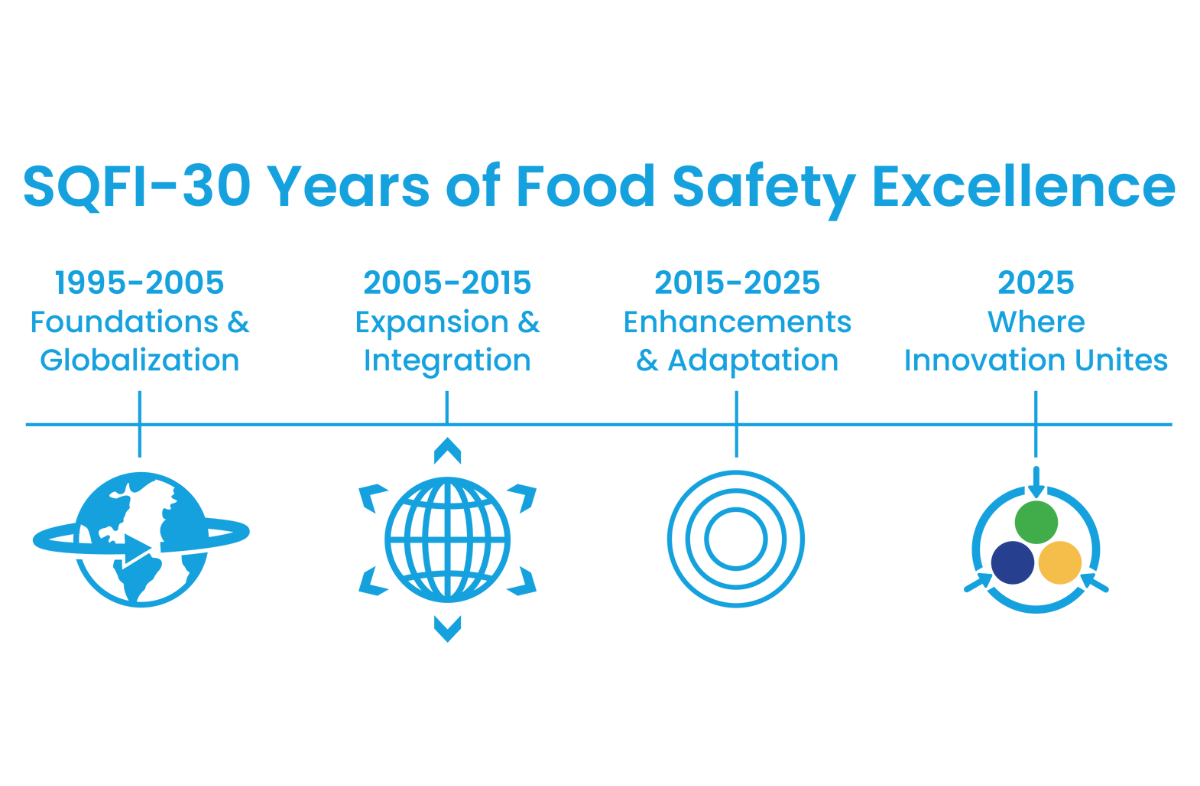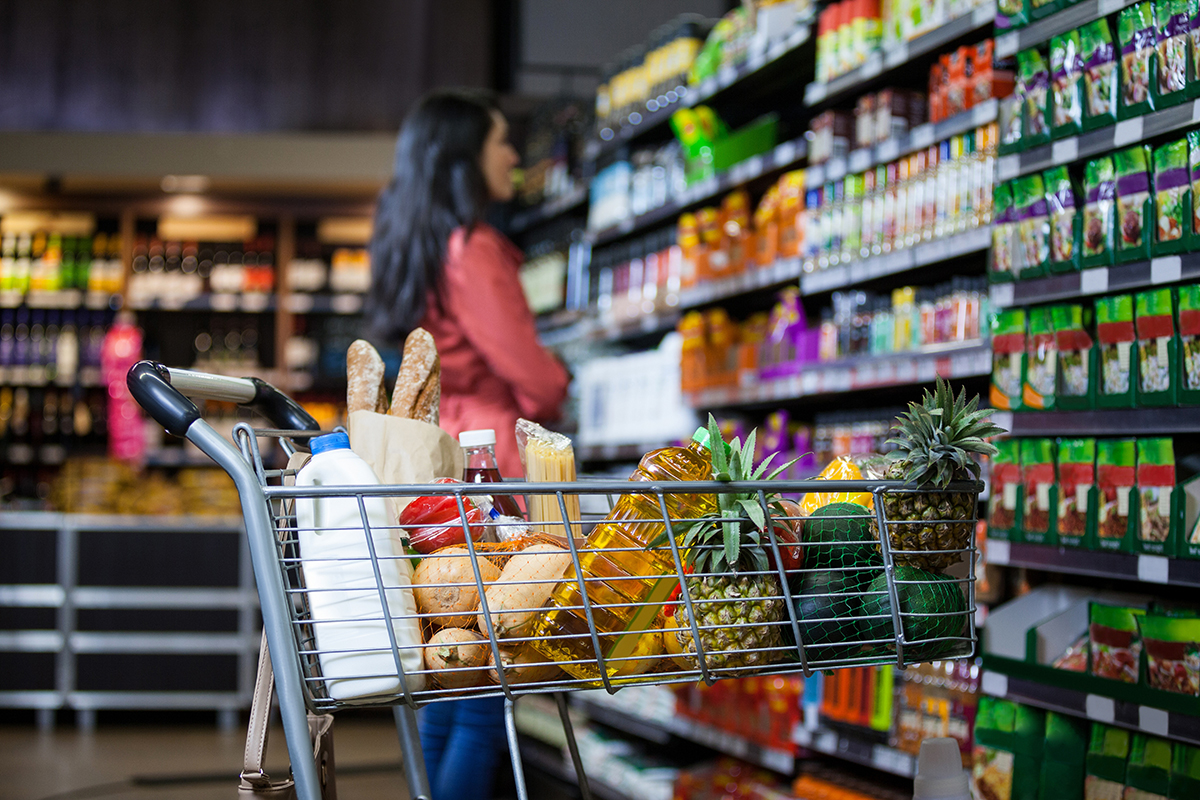By Ashley Eisenbeiser, MS, CFS, Senior Director, Food and Product Safety Programs, FMI

From farm to shelf, numerous links in the supply chain must be diligently maintained to ensure that the food your customers purchase is safe to consume.
As we prepare to celebrate World Food Safety Day on June 7, 2023, it is important to recognize the crucial role that every link in the supply chain plays in ensuring that the food we eat, sell, or prepare is safe.
Exploring the Importance of World Food Safety Day: Safeguarding Our Global Food Supply
Food safety culture is an essential part of business operations for those who work in grocery management or some other part of the supply chain.
World Food Safety Day is a United Nations initiative led by the Food and Agriculture Organization (FAO) and the World Health Organization (WHO). Celebrated annually on June 7, it is a chance to raise awareness of the importance of food safety and recognize the crucial role that we all play in keeping people safe. The day raises awareness of the significance of every link in the food supply chain to ensure that consumers are protected.
Food Safety is Everyone's Business - Food Standards Save Lives
This year’s World Food Safety Day theme is "Food Safety Is Everyone's Business" and emphasizes that everyone can manage risks. According to Dr. Maria Neira, Assistant Director-General, WHO, "Food safety standards protect everyone’s lives. They are key to ensuring safety and quality. That’s why WHO together with FAO leads global expert groups and provides scientific advice to develop international food safety standards to protect consumers’ health. Safe food allows the uptake of nutrients and promotes human development. Nobody should die from eating food.”
Why We Need to Recognize the Role We All Play in Ensuring Food Safety
World Food Safety Day is an opportunity to recognize the vital role farmers, food producers, and retailers play in ensuring food safety. After all, food safety culture is a topic that reaches into just about every area of our business. For those of us who work with food, whether it's in manufacturing, retail, or some other setting, it's essential to recognize these connections.
After all, the supply chain for food is complex, encompassing various stages from production and harvesting to distribution, transportation, and finally, the retail store. Every step in this chain is critical in maintaining the safety of the food produced, and any disruptions in any of these steps can potentially lead to foodborne illnesses.
Food Safety Standards Save Lives - SQFI and FMI SafeMark®
When you're working to develop and strengthen your food safety culture for your business, keep in mind the importance of risk management and how certifications support not only your compliance areas but your risk mitigation area.
SQFI certification is recognized worldwide and signals that a supplier has passed rigorous food safety certification audits. SQFI certification is vital for food retailers to verify that the products they supply to their customers are safe.
Another important program is FMI’s SafeMark® program, which retailers use to train employees on proper food safety practices. SafeMark educates employees on key food safety topics such as sanitation, safe handling, and storage of food, and helps to minimize potential risks during the handling of food.
By understanding the role of and utilizing the SafeMark and SQFI food safety management programs, food retailers can ensure that their employees follow stringent safety standards and minimize the chance of foodborne illnesses.
After all, it's not just about getting food in front of our customers, but also making sure that food is of high quality and safe to consume. Take some extra time to appreciate that this upcoming World Food Safety Day on June 7, and continue to uplift food safety practices every day of the year.


 Industry Topics address your specific area of expertise with resources, reports, events and more.
Industry Topics address your specific area of expertise with resources, reports, events and more.
 Our Research covers consumer behavior and retail operation benchmarks so you can make informed business decisions.
Our Research covers consumer behavior and retail operation benchmarks so you can make informed business decisions.
 Events and Education including online and in-person help you advance your food retail career.
Events and Education including online and in-person help you advance your food retail career.
 Food Safety training, resources and guidance that help you create a company food safety culture.
Food Safety training, resources and guidance that help you create a company food safety culture.
 Government Affairs work — federal and state — on the latest food industry policy, regulatory and legislative issues.
Government Affairs work — federal and state — on the latest food industry policy, regulatory and legislative issues.
 Get Involved. From industry awards to newsletters and committees, these resources help you take advantage of your membership.
Get Involved. From industry awards to newsletters and committees, these resources help you take advantage of your membership.
 Best practices, guidance documents, infographics, signage and more for the food industry on the COVID-19 pandemic.
Best practices, guidance documents, infographics, signage and more for the food industry on the COVID-19 pandemic.
